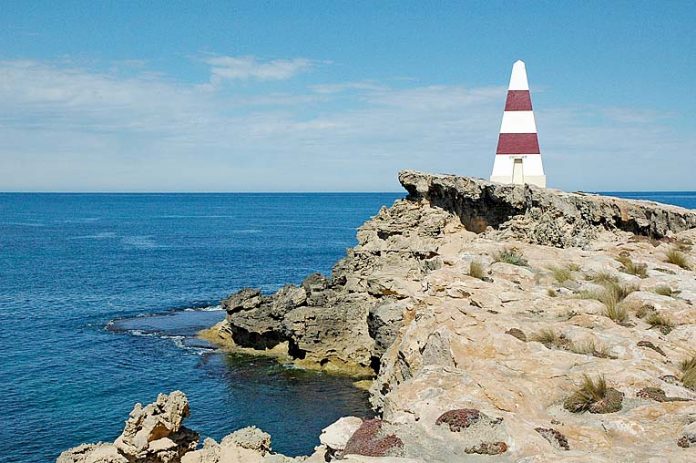PEOPLE entering South Australia must now self-isolate for 14 days from their arrival as part of the State Government’s unprecedented action in response to the coronavirus pandemic.
The new requirement – effective immediately – will be supported by border control measures from 4pm Tuesday and must be adhered to by South Australians, interstate residents and other travellers.
Penalties apply for those who do not adhere to the restrictions, with police to man 12 border control points around the state.
The crackdown on cross-border travel follows reports from The Advertiser that South Australia’s confirmed coronavirus tally has reached 100, more than 30 new cases since yesterday.
Premier Steven Marshall today declared South Australian borders closed in an effort to “protect the health of South Australians” and slow the spread of COVID-19.
Exemptions will apply for essential transport including health and medical supplies, and health personnel and patients, food and commercial supply chains, near border interactions, travel of a relative/carer of a dependent individual, and for emergency services.
Other travellers, such as fly-in fly-out workers or national sporting teams, could be exempt from the provision provided they had approved disease control mechanisms in place.
Details surrounding compliance and how to determine which Limestone Coast industries and residents qualify for an exemption have yet to be publicly released.
From Tuesday, people entering the state through the border control stations will be required to sign a declaration and self-isolate for the 14-day period.
SAPOL will continue to conduct random checks to ensure those required to self-isolate are doing so.
VIRUS TESTING MEASURES EXPANDED
THE criteria for testing at South Australia’s dedicated COVID-19 clinics will be expanded to recognise the risk from interstate travel.
Regional clinics have been established around the state in response to the outbreak, however a drive-thru screening site has yet to be announced for the Limestone Coast.
The state’s health department has expanded testing to anyone who has travelled from interstate in the past seven days and has new respiratory symptoms.
Associate Professor Nicola Spurrier said with increasing community transmission occurring interstate, South Australia needed to act now to slow the onset of local transmission.
“These border controls will give us more time to prepare for the virus in South Australia,” Assoc Prof Spurrier said.
“We are determined to take every required step to help protect South Australians from the continued advance of coronavirus.”
“We also need the community to work together, and everyone to do the right thing in terms of practicing appropriate hand hygiene and social distancing measures.”
South Australian Health Minister Stephen Wade said data from independent think-tank Grattan Institute showed the state was ahead of the curve in regard to coronavirus.
“The data shows that by acting swiftly and decisively to alert South Australians of the threat and by communicating clearly about what are the steps that need to be taken to slow or delay the spread we are in a better position than the eastern states,” Mr Wade said.
“Now is the time for a concerted, community-wide effort as we know the virus is coming and the peak is only weeks or months away.”
ROBE COUNCIL DISCOURAGES VISITORS TO TOWNS
THE District Council of Robe has discouraged visitors to all towns within the council area, citing Robe’s limited medical facilities and staff available to help patients in need in the event of a COVID-19 outbreak.
In a statement, Robe mayor Alison Nunan urged people to reconsider visiting Robe, Boatswain Point, Nora Creina, Greenways and Mount Benson to minimise the exposure of the virus to the community.
Ms Nunan said a number of key factors have been considered, including Robe’s limited medical facilities, the town’s volunteer-operated ambulance service, small supplies of personal protective equipment and only having one pharmacist available to distribute vital medical supplies.
She said some hospitality businesses are considering closing as a result of the Federal Government’s gathering directives and said community members should be prepared for “major limitations on purchases” at the Robe supermarket.
“This may involve you being unable to purchase food if you are not a resident as is being implemented in other areas,” Ms Nunan said.
VICTORIA ENTERS SHUTDOWN MODE
VICTORIA will move over the next 48 hours to implement a shutdown of all non-essential activity across the state to combat the spread of coronavirus.
In a statement Victorian Premier Daniel Andrews said supermarkets, banks, pharmacies, petrol stores and convenience stores will remain open.
Freight, logistics and home delivery will also continue.
School holidays will be brought forward in Victoria, starting on Tuesday, March 24.
Mr Andrews said the decision whether to re-open school after the Term 1 holidays would be determined following advice from Victoria’s chief health officer.
He said the measure was “not something we do lightly”, but if it was not implemented “more Victorians will contract coronavirus, our hospitals will be overwhelmed and more Victorians will die”.
New South Wales will also move to a lockdown over the next two days.
The announcement follows South Australia closing its state borders to all travellers effective immediately.
Western Australia will also close its borders from 1.30pm on Tuesday and anyone arriving after that date will have to self-isolate for 14 days.
EMERGENCY LINE INUNDATED WITH COVID-19 CALLS
SOUTH Australian emergency services are being inundated with triple zero calls from the public, wanting information and advice about COVID-19.
In a statement issued by South Australian Police, residents are urged to only call triple zero in an emergency – if someone is seriously injured or in need of urgent medical help, if life is being threatened, or as a witness of a serious accident or crime.
According to police, calling triple zero in a circumstance that is not an emergency puts lives at risk and redirects crucial emergency resources.
To seek government advice about COVID-19, contact the National Coronavirus Information Hotline on 1800 020 080 or visit www.sahealth.sa.gov.au/covid2019.








